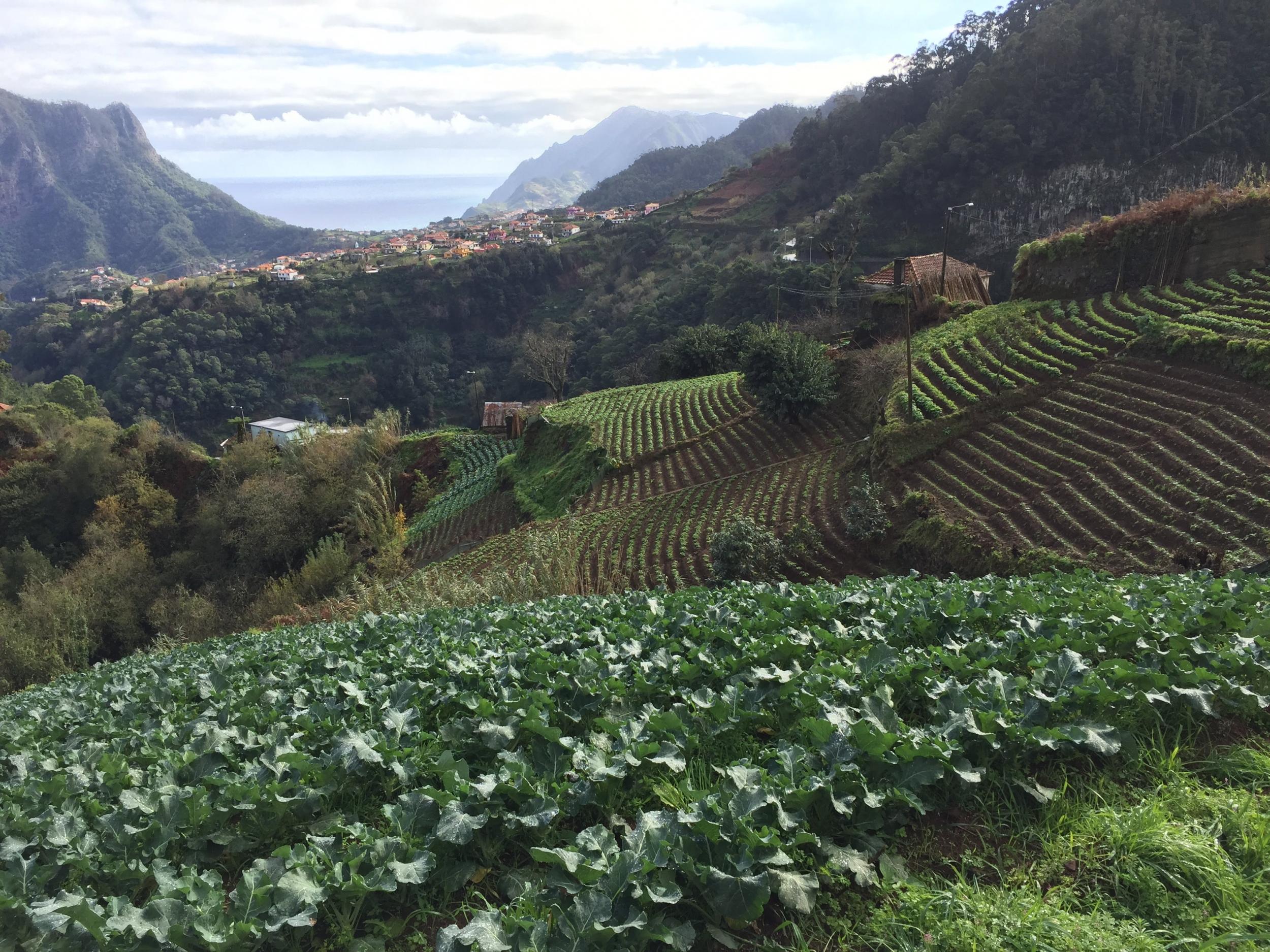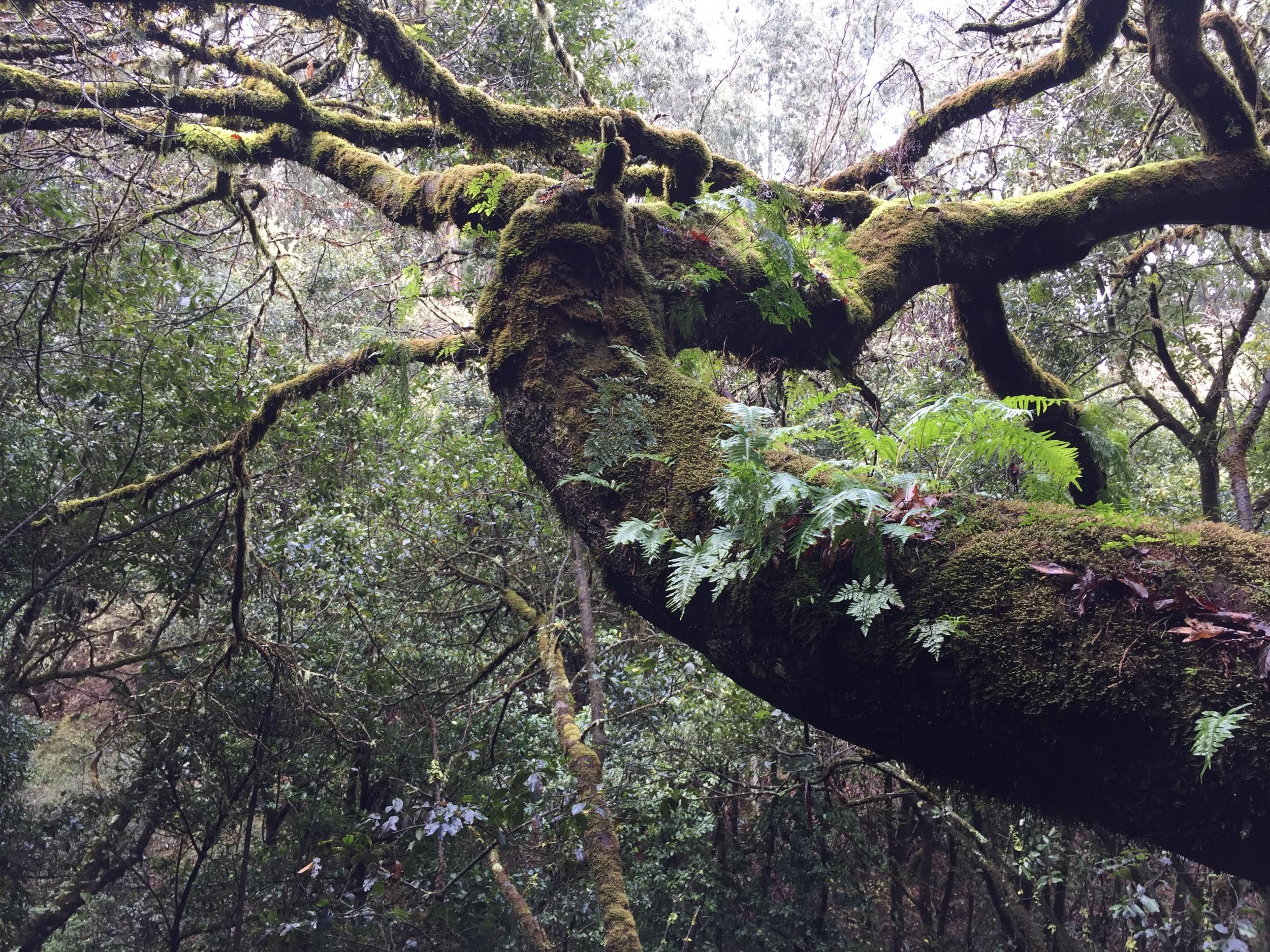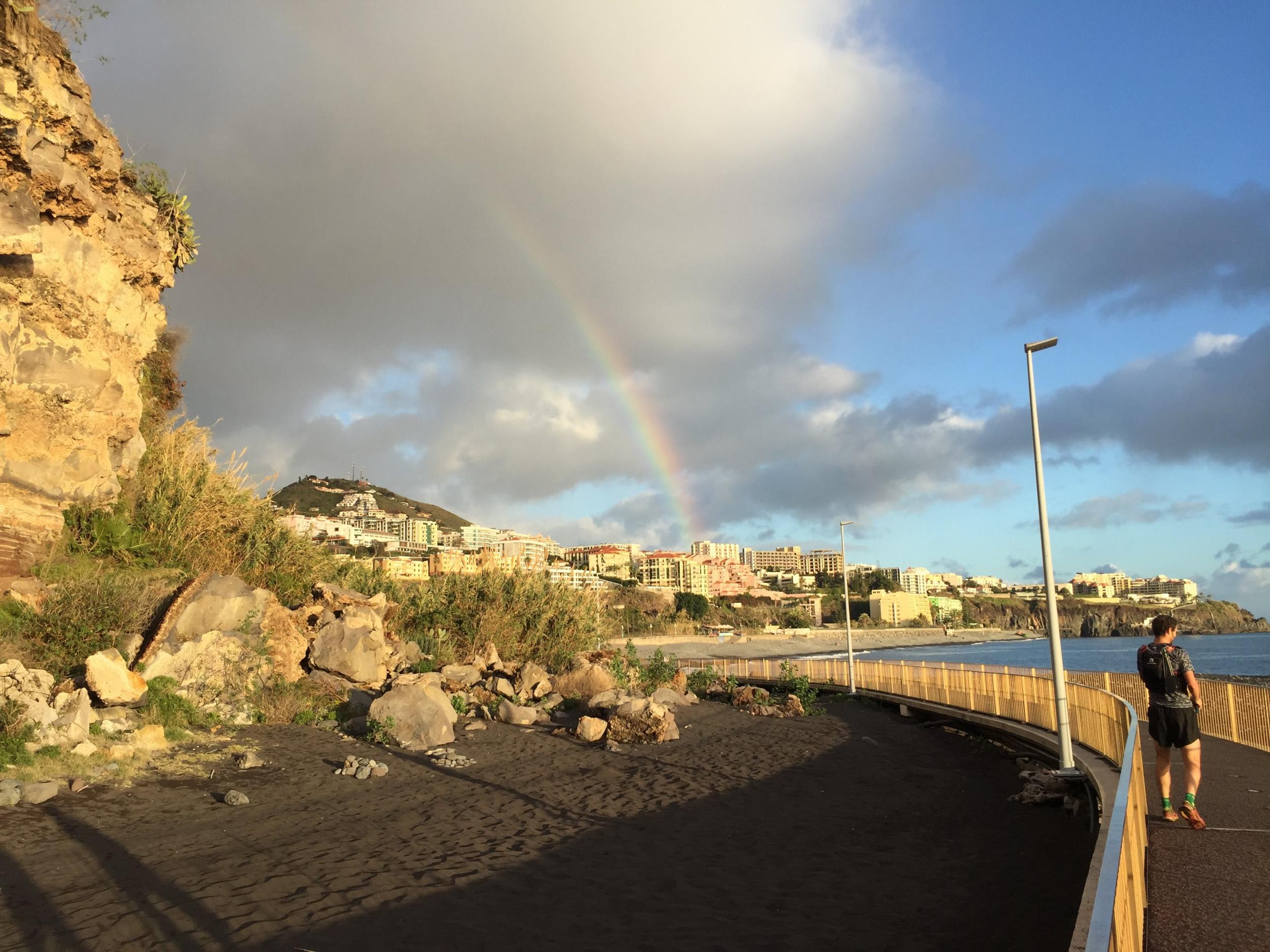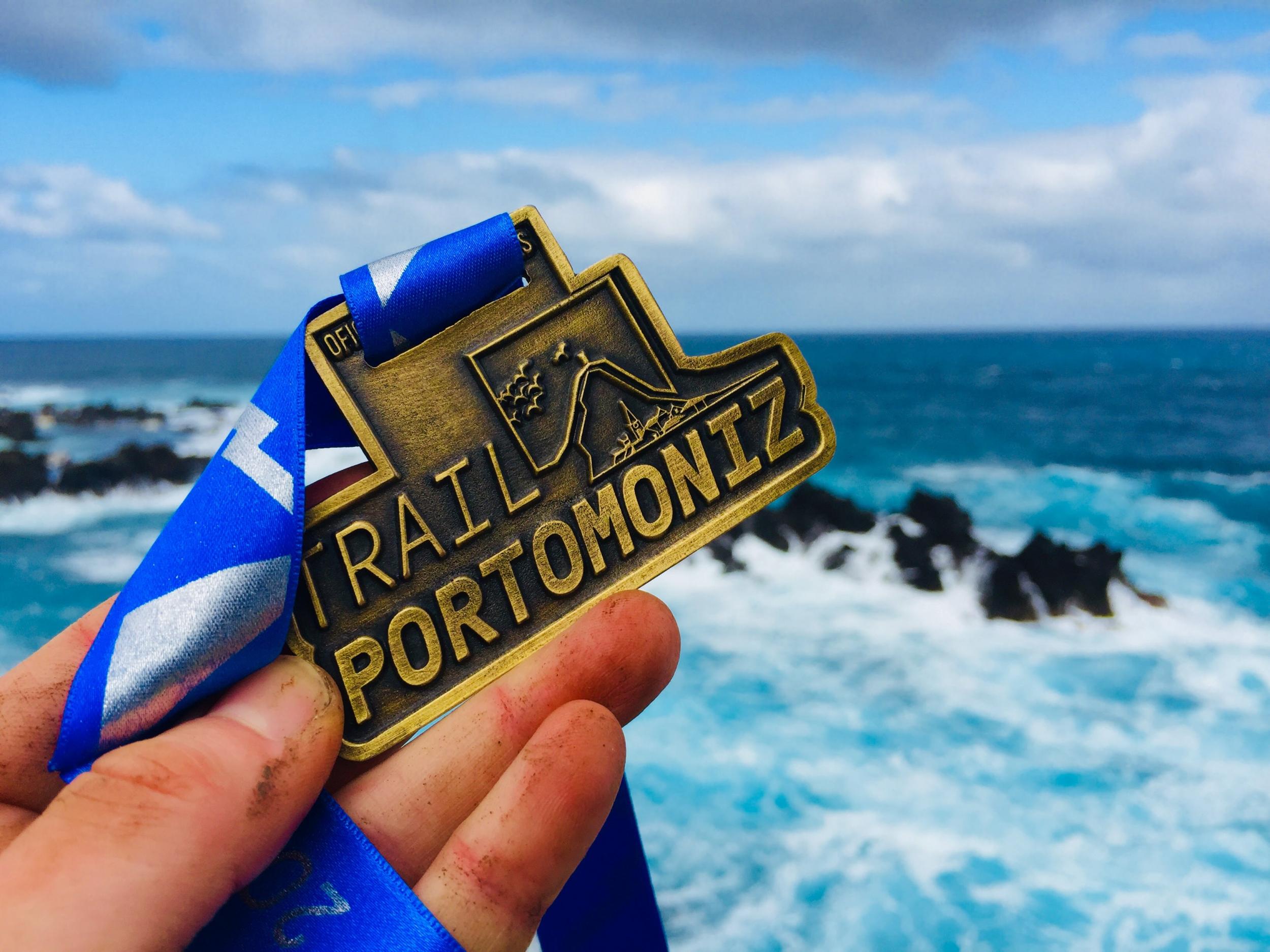Why Madeira is a trail runner's paradise
Forget the 'newlyweds and nearly deads' image - this Portuguese island is an emerging adventure playground, says Sarah Baxter

Your support helps us to tell the story
From reproductive rights to climate change to Big Tech, The Independent is on the ground when the story is developing. Whether it's investigating the financials of Elon Musk's pro-Trump PAC or producing our latest documentary, 'The A Word', which shines a light on the American women fighting for reproductive rights, we know how important it is to parse out the facts from the messaging.
At such a critical moment in US history, we need reporters on the ground. Your donation allows us to keep sending journalists to speak to both sides of the story.
The Independent is trusted by Americans across the entire political spectrum. And unlike many other quality news outlets, we choose not to lock Americans out of our reporting and analysis with paywalls. We believe quality journalism should be available to everyone, paid for by those who can afford it.
Your support makes all the difference.Ghostly shapes jittered in the pre-dawn darkness; all was quiet save for waves crashing into the natural seaside pools. But this was no time for a swim. My trainers were laced. I was going for a run.
Several hundred people had gathered early in this little town for the Porto Moniz trail race. A fleet of runners, all Lycra, GPS and anticipation. When the klaxon finally blared, we set off, winding up, up into a hinterland of steep cobbles, terraced slopes and vineyards. And then up further, along rocky gullies hemmed by Deep Heat-pungent eucalypt, and onto a misty plateau of ancient Laurissilva forest.
We climbed more than 1,000 vertical metres, splashed through bog, slipped across mud, stuffed our faces with flapjacks at aid stations, and grinned and grimaced like wild folk. Madeira is only for “newlyweds and nearly deads”, you say? I think not.
I’m not even sure how an island this rambunctious acquired its reputation for being a bit boring in the first place – Madeira is topography gone mad. A rumple of soaring, plunging, Atlantic-slapped basalt, dramatic at every turn. But this year a new campaign, Madeira Ocean Trails, is attempting to redress this misconception, specifically telling the world’s growing numbers of trail runners and adventurous hikers that the island is perfect for them.
The timing is apt: 2018 marks 10 years since the first trail running race was held in Madeira, and from very small beginnings it has become a major event on the world tour for professional athletes. On 28 April, the Madeira Island Ultra Trail (Miut) saw thousands of competitors tackle one of four routes, from the 16km mini to the full 115km race across the island, from northwesterly Porto Moniz to Machico in the southeast via the island’s 1,862m highest point.

Madeira’s wilderness isn’t just for pros, though. It can be enjoyed at any pace, be that a slow walk, walk-jog or mountain-goat gambol. According to local guide Daniel, trail running has boomed here in the past two years – so much so that he’s ditched his banking day-job to start GoTrail Madeira, specialising in leading fun, scenic and informative runs and hikes across the island. The terrain is ideal, he tells me, and the desire is there. It’s as if a hidden side of Madeira has been unleashed, and the island is happily shaking off its “nice-but-conventional” image to reveal a spanking new identity underneath.
My well-attended and welcoming race in Porto Moniz, on the rugged north coast, showed the local passion for trails. It also part-followed the start of the Miut, heading up to the atmospheric, moss-laden forests of Fanal, a fairytale plateau perfect for hikers and runners. A few days later I also traced the Miut’s last leg, between the towns of Porto da Cruz and Machico, via the striking cliff-hewn Vereda do Larano path. But you don’t have to go far from the capital, Funchal, to find interesting routes.

The EcoTrail Madeira, part of a series of environmentally responsible races in cities across Europe, is another of the island’s big running events, held in October for the past three years. Daniel and I followed some of its route around Funchal’s outskirts. We started high in the hills and were soon skipping along a narrow levada. The Madeira archipelago was discovered 600 years ago, and the levadas date back to the very early days of settlement – more than 2,000km of these irrigation channels spider the island, carrying water from the damp highlands to the fields, and providing excellent access for those on foot.
I balanced along the levada edge like an inelegant gymnast. “If you’re going to fall, just be sure to fall into the channel,” Daniel advises, gesturing to the stiff drop into the lush field on the other side. We might have been in the suburbs but the land was bountiful: bananas are Madeira’s main crop these days (“Our sugar isn’t exported now – we keep it for our rum”), but this rich, volcanic soil is good for all sorts, from passion fruit to potatoes.

Our progress was nice and slow, winding down roads, squeezing between houses; we had plenty of time to take in the views. Most hair-raising was the Levada dos Piornais, cut high into the side of the Socorridos Valley. Here, we ducked through tunnels and under overhangs, criss-crossed the channel and traced sections that seemed suspended in mid-air; it was like an obstacle race at altitude. Fortunately, a railing kept us safe.
Soon, we’d pattered down steps to reach the sea, following a coastal boardwalk just as the glowering sky softened and an unexpected rainbow appeared. Daniel is less amazed than I: “That happens all the time.”
We wound back up to another balcony-like levada in time to see the evening sun hit Funchal, a glowing architectural landslide of terracotta-tops slipping into the glittering sea. From here, nothing much looked flat – Madeira seldom is. Not really ideal for the elderly. But an emerging adventure playground for anyone wanting to work up a sweat on their own two feet.
Travel essentials
Go Trail Madeira organises trail-running and hiking day-trips and tours. The Madeira Island Ultra Trail will be held 27 April 2019.
Join our commenting forum
Join thought-provoking conversations, follow other Independent readers and see their replies
Comments